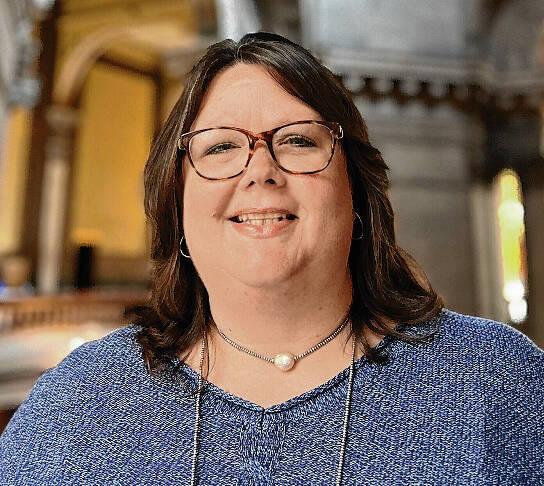Now, this is what I am here for: candidates offering specific proposals, experts assessing those plans and voters learning about an issue — in this case, property taxes — as they consider how to cast their vote in November.
The primary was full of national talking points that had nothing to do with governing Indiana.
But now the race for governor is hitting its stride and I hope to see other discussions just like this on important issues like housing, education, health care and more.
Libertarian Donald Rainwater has been pushing a major property tax proposal for a while. His cap would limit property taxes to 1% of the purchase price of the property or the assessed value, whichever is lower. Additionally, residential property tax would sunset after its owners have paid a total of 1% of the purchase price or the assessed value, whichever is lower, for 7 years.
Honestly, this plan isn’t realistic. At all. Property taxes pay for services that everyone uses. Much of it, by the way, goes to police officer salaries and firefighters. Other uses though are schools, libraries, health departments, zoning, the judicial system. Shall I go on?
And let me just nip this in the bud. While all governments can be more efficient, massive savings aren’t realistic either. Try to cut your household spending by 10% in your head. Can I do it? Yes. Would my quality of life be the same? Absolutely not.
There is a running belief that local governments have experienced a deluge of new revenue as property taxes have risen. So, I asked Larry Deboer of Purdue University, the state’s top property tax expert.
He sent me a chart showing growth in property tax revenue from 2011 to now. While the most recent two years include growth of well above 5%, many other years are under 3%.
The gross property tax levy has grown from $6.2 billion to $10.5 billion. The net levy — after property tax deductions and credits — has grown from $5.5 billion to $8.9 billion. And let’s not forget that inflation has also spiked during that decade-plus.
Now, back to Braun’s plan. He has a four-prong proposal but the first two would have the biggest impact.
One part would cap how much your property tax bill could increase each year to 2% for seniors, low-income Hoosiers and families with children under the age of 18. It would cap increases at 3% for all other taxpayers. This is different than constitutional tax caps already in place, which limit what you pay based on the assessed value of your home.
The other part would increase the standard deduction that homeowners can take. This part of the plan would likely shift property taxes from one class of owner to others, such as to agriculture or business.
When it became clear that some people would see no savings from the deduction changes, mostly those in high-tax areas with more modest homes, Braun on Tuesday added a caveat: all Hoosier homeowners’ tax bills will be reset to the lower of their 2021 tax bill or the new bill based on enhanced deductions in his plan.
The details
My biggest problem with Braun’s plan so far is the campaign hasn’t released an official estimate on what the proposal will cost local government. Because, for every dollar we save, that means fewer services.
I have seen a few estimates of between $700 million and $900 million annually, but that was before the promise to reduce property taxes to 2021 levels.
Those pushing property tax changes don’t acknowledge that loss at all, which is being disingenuous.
Braun’s camp would give local units the ability to pass an operating referendum during a general election to go above his new growth caps. And they note that local government has billions in untapped authority to raise local income taxes.
I am curious to see what Democrat Jennifer McCormick will have to say on property taxes.
Will she stay on the sidelines, seeing it as a natural cycle in a property tax system based on sales-related assessments? Or will she offer up some less drastic reform that could help some taxpayers but also not decimate local coffers?
And don’t forget who really has the say: the Indiana General Assembly, most of whom are up for re-election also and plan to put taxes under the spotlight in the 2025 legislative session.
Niki Kelly is editor-in-chief of indianacapitalchronicle.com, where this commentary first appeared. She has covered Indiana politics and the Indiana Statehouse since 1999 for publications including the Fort Wayne Journal Gazette. Send comments to [email protected].





